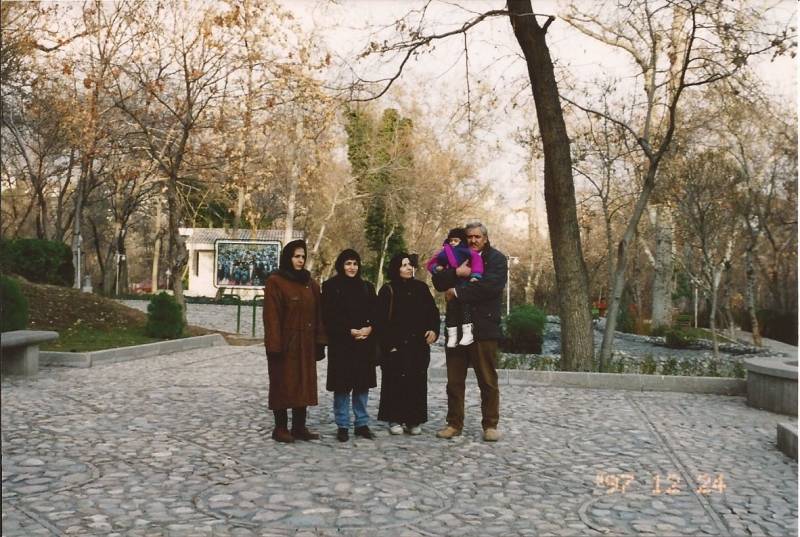There are 180,000 people who claim Iranian ancestry living across California, according to the most recent census data. Many left Iran around the time of the revolution in 1979. SF Weekly’s Ida Mojadad’s parents came to the U.S. around this time as students.
The U.S. and Iranian governments have remained adversaries since the revolution. This political relationship has shaped the way Mojadad thinks about her Iranian-American identity. And after the U.S. killed Iran’s top general, she’s once again thinking through some difficult questions.
Interview Highlights
You were with your mom at the time. What was her reaction?
She didn’t really seem to think it was something larger. She just said “I don’t really care if it’s some commander; I just care if something happens to any people.” Later, when we were talking with my dad, we realized it was something bigger.
There was obviously a lot of reaction to this on social media. I think “World War III” was actually trending. You tweeted out this tweet (warning: contains strong language). What was going through your head when you wrote that tweet?
As long as I’ve known Iran, all the news that comes out around it — it’s just the country, the government — and no one thinks about the people inside of it. And that rings true for other conflicts that we’re in.
Regular, everyday people. Maybe they own businesses, maybe they want to do more science breakthroughs… it’s a highly educated country with a lot of middle-class folks, and they just want the regular things that everyday people want all around the world, and they just get so lost in these news bursts.
I want to talk about the last few years. You told us before we started recording that the Trump presidency felt like this turning point for you. How has it felt like a turning point?
Before Trump became president, we had President Obama and it felt like the two [countries] could come together because of this nuclear deal, this landmark nuclear deal. This was really the first case of real diplomacy since the hostage crisis [1979-1981].
There’s no embassy in Iran. So that level of communication is not there, and it came together under Obama. And it felt like, finally, the two could be… well, not friends — that would take a while — but that the two could have a relationship again, that there could be this free-flowing of family visits, and I could finally visit and see my parents’ hometown again.
There was this kind of hopeful moment that there would be more of an exchange, and that the two parts of my family could exchange fluidly. And then after Trump, it became obvious that with the travel ban, and with him ripping up the nuclear deal, that it would be a very long time before that could happen again.
I’m curious if there’s any part of you that wishes you were in Iran with family that you have there.
Yeah, I do, actually. One of the biggest things I want for myself is to be able to go over there and bask in this place that shaped me, and be with family that I don’t even know. There are so many family members, and I’ve met them before but it was so long ago.
Sometimes, when my family talks about them, I don’t even know who they’re talking about. And I want to at least on base level know who they’re talking about, because I don’t even know them anymore.
You can kind of not think about it most of the time, but when the reminder comes, like my aunt being able to visit, it really shows you what you’re missing out on the rest of the time.
When I hear you talk about the struggle that you have living here, and these two identities that you hold, it seems like what’s happening, politically, between the U.S. and Iran, is symbolic to you. Symbolic of the tension between the two identities that you hold.
Oh, definitely. My entire life, the two countries that, technically, I am citizens of, have been adversaries. And with the most recent development, it just seems like that’s going to continue — and that internal and external war is just going to march on.
I’m slowly being able to let the external actions not affect the internal ones as much, but when moments like these happen, it’s even harder.

